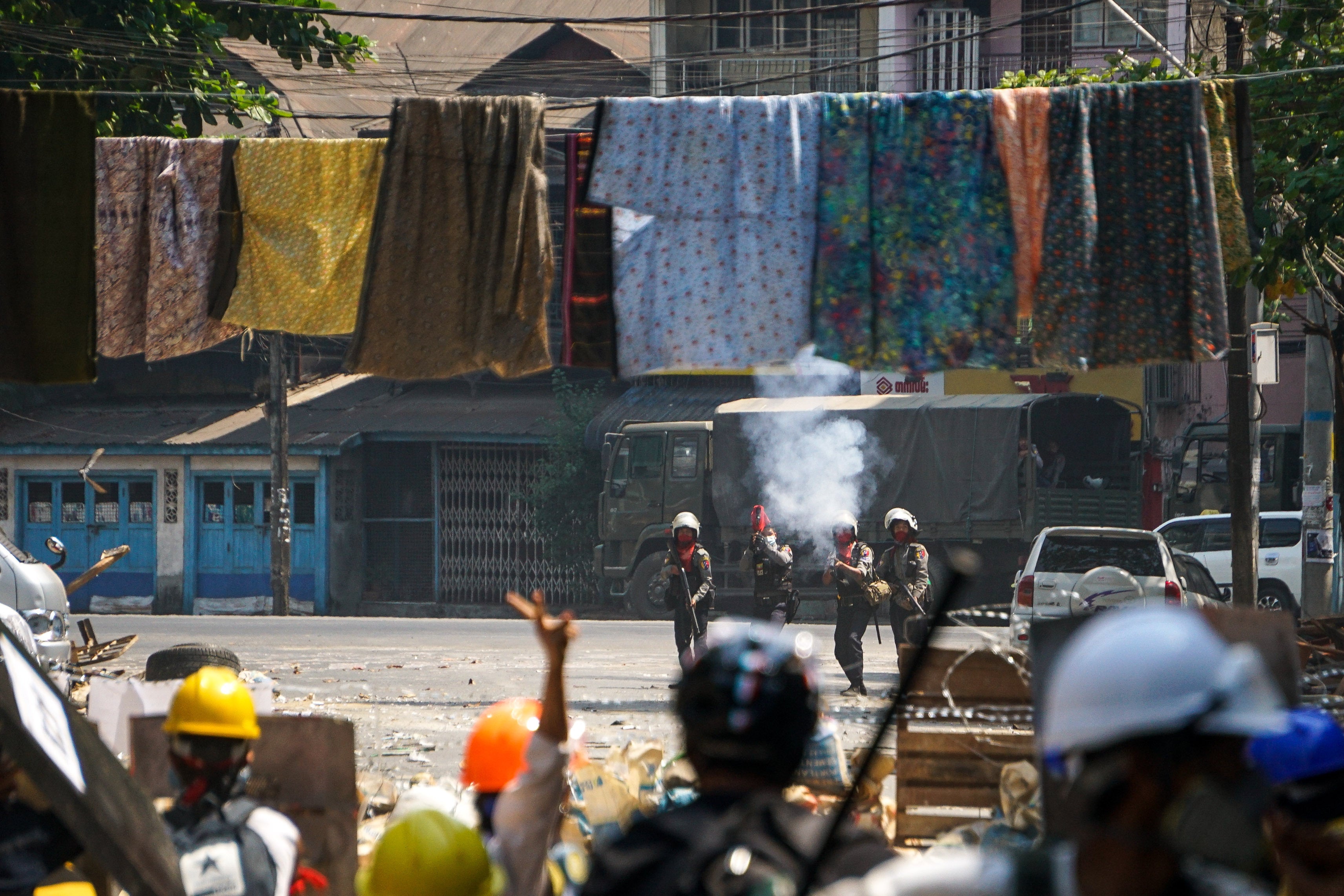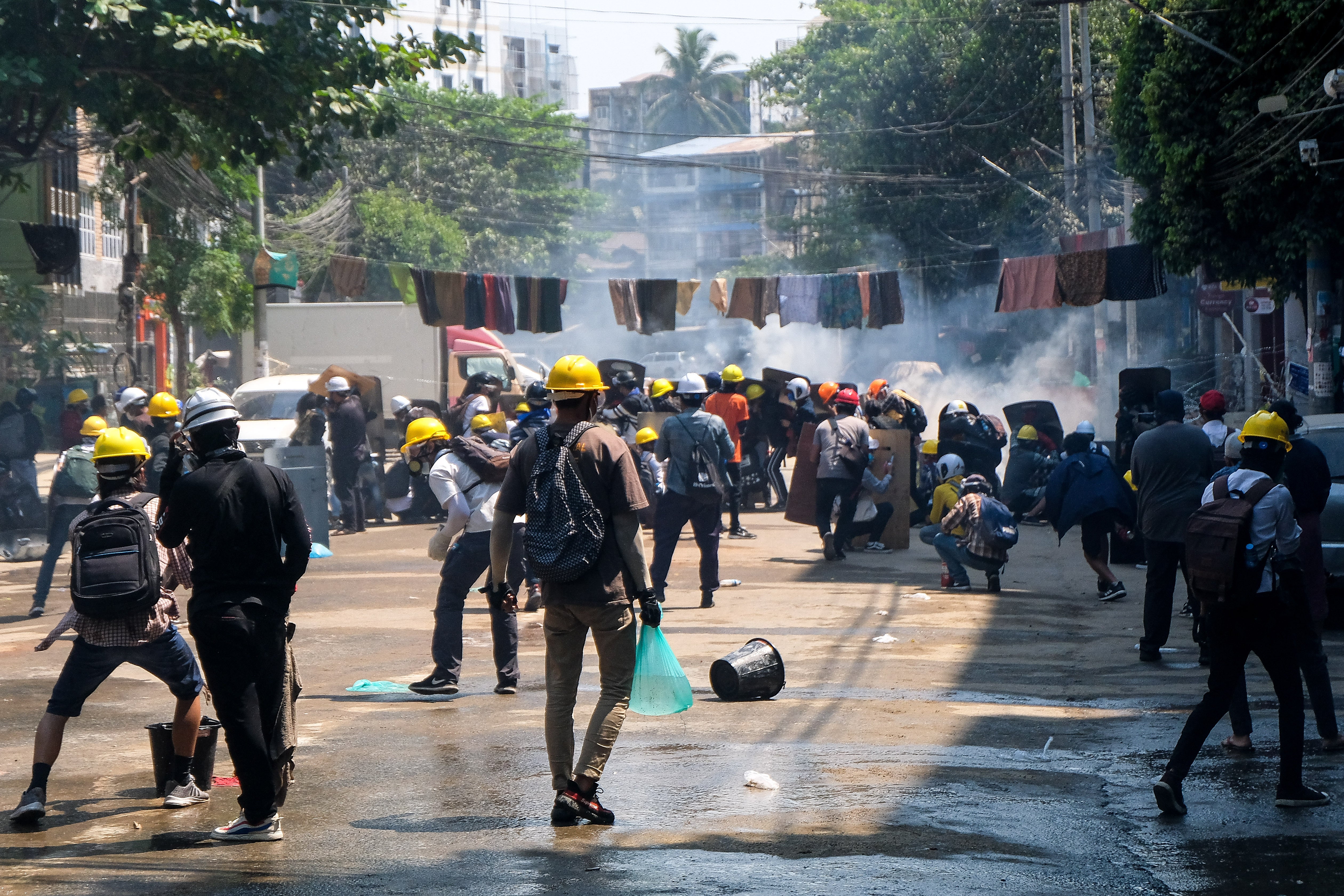Myanmar protesters string up women’s clothes to slow military’s advance
Superstition suggests it is unlucky for men to walk under wraparound garments in southeast Asian country
Your support helps us to tell the story
From reproductive rights to climate change to Big Tech, The Independent is on the ground when the story is developing. Whether it's investigating the financials of Elon Musk's pro-Trump PAC or producing our latest documentary, 'The A Word', which shines a light on the American women fighting for reproductive rights, we know how important it is to parse out the facts from the messaging.
At such a critical moment in US history, we need reporters on the ground. Your donation allows us to keep sending journalists to speak to both sides of the story.
The Independent is trusted by Americans across the entire political spectrum. And unlike many other quality news outlets, we choose not to lock Americans out of our reporting and analysis with paywalls. We believe quality journalism should be available to everyone, paid for by those who can afford it.
Your support makes all the difference.Anti-coup protesters in Myanmar have been stringing up women’s clothes across roads to slow down the advance of the army and police.
In the southeast Asian country, it is bad luck for men to walk beneath wraparound garments known as longyi.
As a result, footage on social media shows police officers removing lines of longyi before going past them.
“The reason why we hang the longyis across the streets is that we have the traditional belief that if we pass underneath a longyi, we might lose our luck,” a 20-year demonstrator told Reuters.
“The younger generation nowadays doesn’t believe it anymore, but the soldiers still do, and it’s their weakness. So, we might gain more time to run if they come towards us in case of emergency,” he said.

The strategy does not, however, prevent police and the military from using teargas, stun grenades and bullets – both live and rubber ones – as they continue to do.
Since the military seized power on 1 February, more than 50 protesters have been killed across the country, with the violence intensifying in the past few weeks.
At least 18 demonstrators died after being shot on Sunday, while another 38 lost their lives on Wednesday, the UN Humans Rights Office has said.
More than 1,000 people have been detained by security forces, according to the independent Assistance Association for Political Prisoners.
Aung San Suu Kyi, whose National League for Democracy (NLD) won a landslide election in November, was detained along with other senior politicians before parliament was due to open on 1 February. She and others now face spurious charges brought against them by the Tatmadaw, Myanmar’s military.

The army took power claiming, without any evidence, that the election had been rigged.
In response to the recent violence, UN special envoy for Myanmar Christine Schraner Burgener urged the body’s security council to tackle the chaos caused by the military.
“Robust” action is needed to prevent violence and restore democracy, she said on Friday.
“We must denounce the actions by the military. It is critical that this council is resolute and coherent in putting the security forces on notice and standing with the people of Myanmar firmly, in support of the clear November election results,” she added.
However, unified action from the UN is out of the question given that China and Russia, both of whom are security council members, would most likely veto action against the junta in Myanmar.
Additional reporting by Reuters




Join our commenting forum
Join thought-provoking conversations, follow other Independent readers and see their replies
Comments